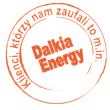Course for the smoker of central heating furnaces and boilers
How to get boiler stoker qualifications - training
In order to be eligible to take the state examination, a course must be taken to prepare the candidate for the profession. Prerequisites include being at least 18 years of age, having a minimum of primary school education and having no health contraindications, which are verified by a medical examination. These examinations determine, among other things, the correct functioning of the senses of smell, sight, hearing and touch. These play a key role when it comes to detecting malfunctions of equipment that carry a danger.
The training consists of a theoretical and a practical part. The programme is designed to comprehensively prepare the trainee for the examination and for future work.
 The training program includes:
The training program includes:
- general provisions and selected issues,
- regulations on technical supervision,
- organization of work with thermal devices,
- duties of a central heating stove stoker,
- selected knowledge of thermal technology,
- fittings and materials,
- diagram of a central heating boiler room,
- water in heat management,
- steam and water boilers - general information,
- operation of boilers,
- heat networks and installations,
- industrial steam and hot water equipment,
- solid fuels, liquid fuels, control and measurement equipment,
- Health and Safety at thermal installations and at the position of CO burner, fire protection, medical emergencies.
Heating qualifications for the position of a CO smoker
Within the scope of these powers it is granted certificate of qualifications E., allowing for work related to operation, maintenance, renovation and assembly, or qualification certificate D, i.e. supervision, intended for people who direct the persons performing operational activities. Entitlements are granted for a period of five years. After this deadline, if you want to continue to practice the profession, you must submit an appropriate application for their extension.
With qualifications, you can apply for jobs not only in boiler rooms, but also in power plants and combined heat and power plants. The job market for boiler smokers is quite wide and diverse, making it possible to find a job in many companies.
What does a smoker work like and what are his duties?
The smoker is responsible for operating boilers whose purpose is to provide heat, steam and hot water to buildings. Smokers are indispensable in the boiler rooms of schools, offices, clinics, hospitals and many other buildings with a large surface area.
Servicing boilers involves not only supplying fuel, but also a number of other activities that enable the proper operation of the device. The smoker must have the skills to control the operation of cleaning and exhaust gas devices, auxiliary devices and control and measurement devices. He must take care of the good technical condition of the boilers, as well as correctly read the indications of specialized equipment. Its task is to constantly monitor the pressure and temperature, and in the event of a failure, report it to the supervisor.
In addition to operating the boiler itself, the person in this position is responsible for verifying the tightness of pipes, fittings and installations that supply heat. It is necessary to keep a register of meter readings and measuring instruments.
Legal regulations
Let's start by explaining why and which furnaces require permissions. According to § 1 point 1 lit. c of the Regulation of the Council of Ministers of December 7, 2012 on the types of technical devices subject to technical inspection (Journal of Laws, item 1468), it covers liquid boilers with a capacity of more than 2 dm3, intended for heating liquids without changing the state of matter, with the use of heat extracted from fuel by exothermic reaction or from electricity.
Requirements for qualifications for specific positions are specified in the Regulation of the Minister of Economy, Labor and Social Policy of April 28, 2003 on the detailed rules for confirming qualifications by persons involved in the operation of devices, installations and networks (Journal of Laws No. 89, item 828, as amended). The devices included in this act include water boilers for solid, liquid and gaseous fuels with a capacity of more than 50 kW, so permissions are required to operate them. We will not find boilers with a power of more than 50kW in a single-family house, but in boiler rooms used to heat a building with a much larger area.
 Gas boilers - types
Gas boilers - types
Gas boilers are heating devices, among which we can distinguish many different types. The advantage of gas heating is its eco-friendliness resulting from the low emission of substances harmful to the environment. Therefore, these furnaces are still the most popular devices in this area. Boilers with a capacity of over 50kW can be found in many buildings, both in large apartment blocks, hotels and commercial premises.
The basic criterion distinguishes boilers traditional and condensation. In both cases, their task is to heat water and buildings, but condensing boilers have a decisive advantage in the benefits of use. The essential difference is the combustion chamber, which in the case of traditional boilers can be open and closed, while in the case of condensation boilers only closed. If the chamber is closed, air is taken directly from the outside of the building, e.g. from a chimney shaft, thanks to which the room does not need to be ventilated and the exhaust gases do not get into it. If, on the other hand, the chamber is open, a ventilation grille is necessary as the device draws air from the room. Condensing boilers are characterized by lower heating costs, because their operation is more efficient. Their maximum efficiency is 109%, and traditional boilers only 90%.
Due to the method of domestic hot water preparation, gas boilers can be:
- single-function- their work consists in collecting water in a properly selected container (such a solution is used in most multi-family buildings);
- bifunctional - they are a combination of a boiler heating the building with an instantaneous domestic hot water heater;
- dual-function with a hopper- equipped with a small tank (a solution rarely used in larger buildings).
Powers to work
We invite you to the preparation course for the exam for the authorization to work as a stoker and central heating boiler stoker. Registrations are made by phone and via the contact form.






























